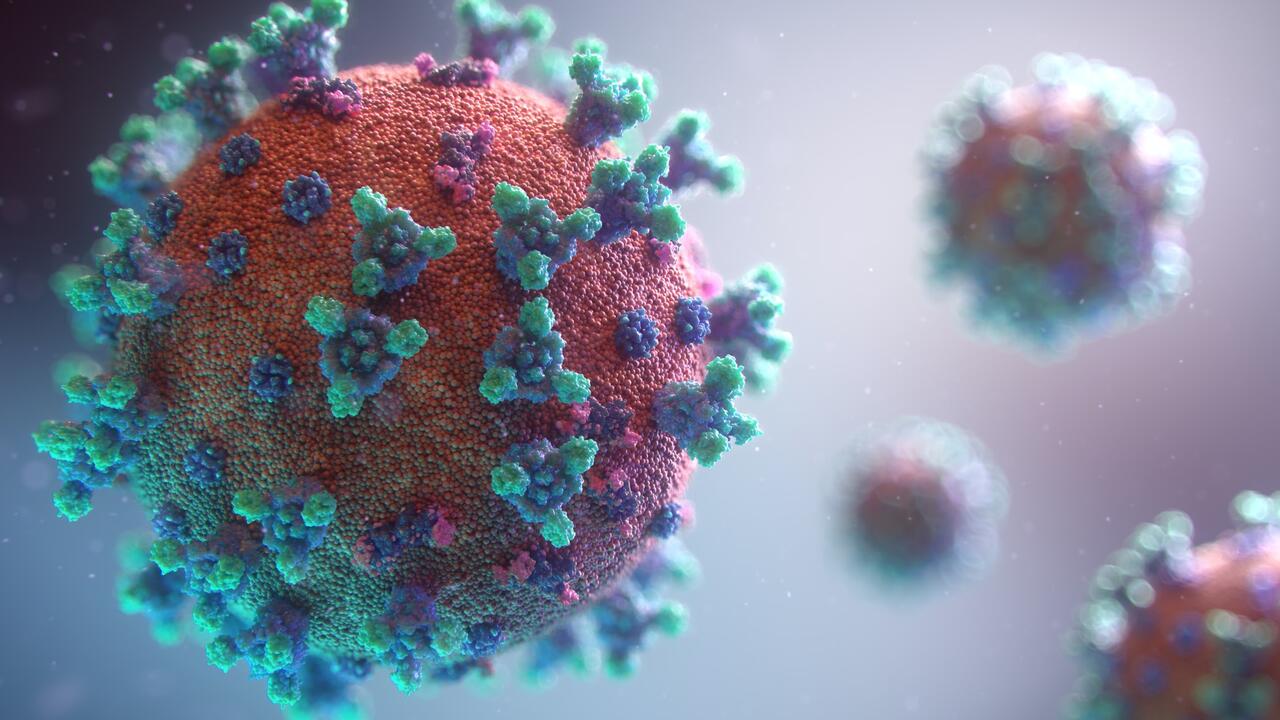
In pursuit of a vaccine
The global race to produce a vaccine that will be effective in protecting us from COVID-19

The global race to produce a vaccine that will be effective in protecting us from COVID-19
By Angelica Sanchez University RelationsWhile we continue to see the number of positive and recovered cases change across the world, the COVID-19 pandemic continues to be a threat to everyone’s health and well-being. There’s a global race to produce a vaccine that will be effective in protecting us from the virus and perhaps be our best hope for ending the pandemic.
Roderick Slavcev is a Waterloo professor from the School of Pharmacy. On Wednesday, June 10, he joined us for this week’s Ask our Experts community talk to share his work on a DNA-based option vaccine, to talk about why finding a vaccine is so important, as well as answer your questions on how COVID-19 will be managed moving forward.
A vaccine for COVID-19
“When I think of COVID-19 and the impact that it’s had [on everyone],” Slavcev says. “I think of the word unprecedented.”
Slavcev explains that when a pandemic such as the COVID-19 outbreak becomes a global outbreak, the virus becomes more than just a public health concern. The pandemic continues to have an impact on everyone’s health, mental well-being and the economy.
“The interesting part here when we think about where medicine is today, we have a very personalized approach to this,” Slavcev says. “… and we’re leading more towards the concept of precision medicine and how we treat individuals.”
Currently, the World Health Organization maintains a running tally of vaccines that are in development worldwide. Slavcev believes that vaccines are easy to overlook when people start to think about the risk, the side effects and whether it’s worth taking. Everyone has their own personal viewpoint on vaccines. But when we consider the factor of being in the middle of a pandemic with a potential dire consequence of not having a cure, it is then a testament of how the world should be seeking for a vaccine.
Developing a vaccine
“There are three primary pillars we have to look at [when developing a vaccine],” Slavcev says. He highlights that researchers should consider the safety, ethicality and the manufactural ability when developing a vaccine. Slavcev believes that concerns around the safety and ethicality to produce a vaccine, are areas that researchers should focus on when developing a vaccine for the COVID-19 pandemic.
“Durability here would be an amazing asset,” Slavcev says. “[The vaccine] wouldn’t just be against SARS-COV-2, but against any subsequent exposures … and whatever might be coming down the pipeline for subsequent pandemics.”
Slavcev explains that manufacturability is also important where researchers have to consider if it is possible to generate that many doses to be distributed globally.
He adds, “We took all of these into consideration and came out [with a research plan] which we believe [has] a strong strategy moving forward … we call it synthetic infection.”
Slavcev’s team of researchers are developing a non-invasive DNA-based vaccine that can be delivered through a nasal spray. The vaccine will work by using engineered bacteriophage, a process that will allow the vaccine to stimulate an immune response in the nasal cavity and target tissues in the lower respiratory tract.
Join the University of Waterloo in partnership with CBC Kitchener-Waterloo as we go Beyond the Headlines to discuss the realities unfolding in our post-COVID world. This two-part online series will feature in-depth conversations with researchers who will discuss the issues you are reading about in the news to make sense of the broader social, political and economic implications.
Next week, our first community lecture will be hosted by Dr. Lili Liu, Waterloo’s Faculty of Applied Health Sciences dean, and moderated by CBC Radio One’s Craig Norris. Waterloo panelists will include Dr. Bryan Grimwood, Dr. Sue Horton and Dr. Bessma Momani.
On Wednesday, June 17 at noon, our three University of Waterloo researchers will discuss the way that politics, trade and tourism will be influenced by our post-COVID world.

Read more
How to overcome quarantine boredom during the COVID-19 pandemic

Read more
How the current economy will impact people’s savings and retirement plans

Read more
How to use social media effectively during a pandemic and spotting fake news stories about COVID-19
The University of Waterloo acknowledges that much of our work takes place on the traditional territory of the Neutral, Anishinaabeg, and Haudenosaunee peoples. Our main campus is situated on the Haldimand Tract, the land granted to the Six Nations that includes six miles on each side of the Grand River. Our active work toward reconciliation takes place across our campuses through research, learning, teaching, and community building, and is co-ordinated within the Office of Indigenous Relations.